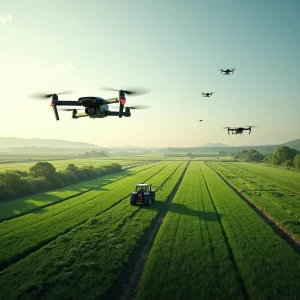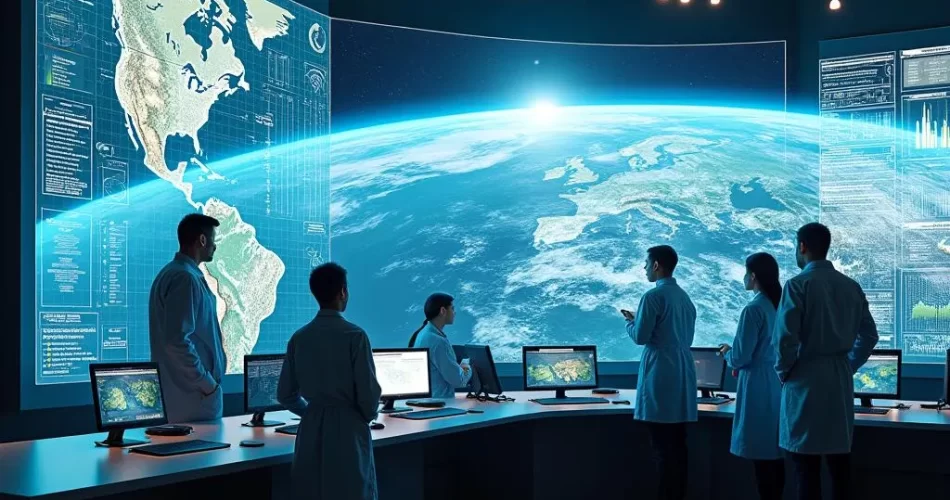The Impact of AI on Climate Change: Harnessing the Power of AI for a Sustainable Future
Artificial Intelligence (AI) is no longer a concept confined to the realm of science fiction. Today, AI has become an integral part of our daily lives, transforming industries, streamlining processes, and offering unprecedented opportunities for innovation. One area where AI’s potential is particularly significant is in addressing the global challenge of climate change.
AI in Climate Modeling and Prediction
Climate modeling and prediction are crucial to understanding the complexities of our planet’s climate system. AI, with its ability to process vast amounts of data quickly and accurately, can significantly enhance these models. By incorporating AI, scientists can improve the resolution and accuracy of their predictions, enabling more effective strategies to mitigate and adapt to climate change.
Energy Efficiency and Resource Management
AI can optimize energy usage in various sectors, from power grids to manufacturing, by predicting demand patterns, identifying inefficiencies, and suggesting solutions for energy conservation. This helps reduce carbon emissions and contribute to a more sustainable energy system.

AI in Agriculture
AI can revolutionize agriculture by improving crop yields, reducing water usage, and enhancing farm management. For instance, AI-powered systems can predict weather patterns, optimize irrigation, and monitor crop health, leading to more sustainable farming practices and reduced greenhouse gas emissions.
AI in Waste Management
AI can streamline waste management processes, from recycling to disposal. For example, AI algorithms can sort waste more efficiently, reducing the amount of waste sent to landfills and promoting a circular economy. Moreover, AI can help in predicting waste generation patterns, enabling better resource management and waste reduction strategies.
The Challenges and the Way Forward
While AI holds tremendous potential in combating climate change, it also presents challenges. Issues such as energy consumption, data privacy, and the carbon footprint of AI systems need to be addressed. It is essential to ensure that the AI solutions developed for climate change are sustainable, ethical, and transparent.
In conclusion, AI can be a powerful tool in the fight against climate change. By harnessing AI’s capabilities, we can develop innovative solutions for climate modeling, energy efficiency, agriculture, waste management, and more. However, it is crucial to approach AI development with a focus on sustainability, ethics, and transparency. By doing so, we can strive for a future where AI not only contributes to a sustainable planet but also helps create a more resilient, efficient, and equitable world.

